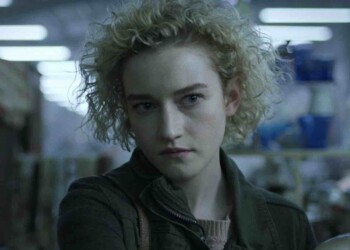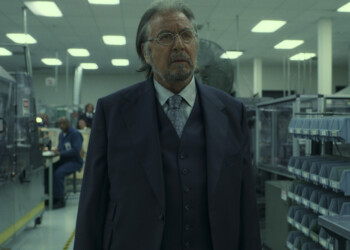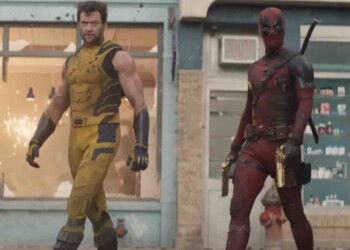A review of the new film starring Adam Sandler titled ‘Men, Women and Children’ where the online world leads us to a life less connected…
By Patrick Guera — Staff Writer
Odds are very good that right now, you are reading this from the other end of a glowing screen. In fact, that’s the only way you can access the fine website that is Nerdcore Movement. The question is, just how often does that screen illuminate your face? How often is the great wide open just a dim backdrop to the life you lead primarily online? We geeks have carved out our niche online.
For some it has even opened us up, allowed us to meet like-minded people and find community in what we thought were lonely, geeky endeavors. Perhaps you’d go as far to say it has improved you life. But what about everyone else? People who don’t necessarily fit into the template of the Comic Book Guy from The Simpsons? Did we ever stop to think that once the rest of the world caught on to the Information Super Highway, there might be adverse effects? Unlike last year’s Her told a tale of a future where man gets lost in connection; Men Women and Children examines the bigger picture of a life where the Internet replaces the family unit right here and right now.
Men, Women and Children stars and ensemble cast top-lined by Adam Sandler (Grown Ups, Happy Gilmore) and Jennifer Garner (Alias, Dallas Buyers Club). The stories of multiple families in a small Texas town weave together as the glowing screens of their phones and computers increasingly separate their lives. Sandler plays a father and husband creeping ever closer to his midlife crisis. The spark between he and his wife is all but extinguished and his relationship with his children is non-existent. His wife has also lost all ability to show interest in her marriage and both of them begin to engage in online infidelity that quickly becomes real. Meanwhile, their 15 year-old son spends an unhealthy amount of time watching fetish porn online, which has begun to alter his adolescent libido.
Garner plays what is becoming a familiar turn for her as the fretful mother, desperate to protect her daughter from the dangers of the Internet. Her overbearing nature suffocates her otherwise normal daughter, Brandy, who finds herself desperate for an identity that isn’t carefully monitored. Garner’s character is so obsessed with protecting her daughter from the Internet that she never stops to see that she herself has become isolated and withdrawn, failing to be a mother and wife.
Dean Norris (Breaking Bad, Little Miss Sunshine) plays an out-of-touch father in complete disarray after his wife leaves him and his son increasingly finds comfort in an online MMORPG. Judy Greer (Dawn of the Planet of the Apes, Jurassic World) plays a failed actress trying to relive her dreams through her celebrity obsessed daughter, using the internet as means to an end she never saw coming.
Each family’s plight is rooted in the same thing, and it’s not exactly their preoccupation with the Internet. All these families have stopped communicating. Director Jason Reitman (Juno, Young Adult) doesn’t actually lay all of the blame on a culture obsessed with connectivity, rather he shows that communication has been lost and living life online has made it easier to simply stop talking to one another. Certain characters like Sandler and Norris barely understand the Internet, but after years of letting it suck their children and spouses away these husbands find themselves emotionally impotent.
One day these men woke up and realized that they let the Internet and texting take their places. Regardless of the culture of connectivity, you still have a job as a husband and father to reach out to your family. Garner moves so far in the other direction- monitoring her daughter’s every move online- that she forgets to be a mother. It’s a stark warning to parents who often look toward the Internet as the wedge between them and their children. Reitman asks parents in the audience to stop vilifying the Internet, and instead, learn how to be more conscious of how parenting must change in the Internet age.
The kids of Men, Women and Children truly outshine their older counterparts. The awkward interaction with each other and their families is timeless in its portrayal of teen angst. The kids really convey an important message: the landscape may have changed, but the complications of being a teenager remain the same. That doesn’t exonerate the Internet, however.
The film explores just how easy it is for disconnected children to find sanctuary online in many strange, sometimes dangerous forms; forms that young minds may not be capable of properly interpreting. One particularly shallow side story involves a girl who has become fixated on being thin. In times of panic she retreats online to a community of like- minded people who, without hesitation, reinforce her worst inadequacies.
While this particular side story lacked development it did shine a light on the flip side of being an absentee parent in the Internet age. Children without guidance and positive reinforcement can and will seek it out online. We all know too well that online culture can be completely devoid of sympathy and often is mean-spirited beyond comprehension. Amplify that on to a young, impressionable mind and teenage angst turns to full-blown crisis.
The movie doesn’t even find time to go into the epidemic of cyber-bullying and sexual predation amongst children and teens. Instead, Reitman chooses to focus on teens that simply want attention that they are not getting in real life. It’s a valid point, but there are many more dangers associated with the Internet that could have taken the larger focus.
The biggest flaw of this movie is the amount of intertwining storylines. There are simply too many directions to be pulled in to give each story its adequate breathing room. Some stories develop well, only to find their endings rushed, left hanging, or forgotten altogether. Jason Reitman is a smart director. Perhaps he felt some stories do end that way, with little resolution. But based on his track record I think there was a few too many stories this time out. Men, Women and Children might have been better suited as a miniseries or a tighter film, focusing and bolstering the strongest stories.
Still, Men Women and Children is a raw, unflinching look at the future of family in the connected world. The performances are genuine and disturbingly real and the message is clear, if not on the nose at times. I can imagine this being a tough, but necessary film to watch for parents of children and teens in today’s society.
The Internet isn’t going anywhere and its reach into our children’s lives is only getting deeper, it will be up to us to log off once and a while and communicate, so that we don’t lose the ability to be human.






